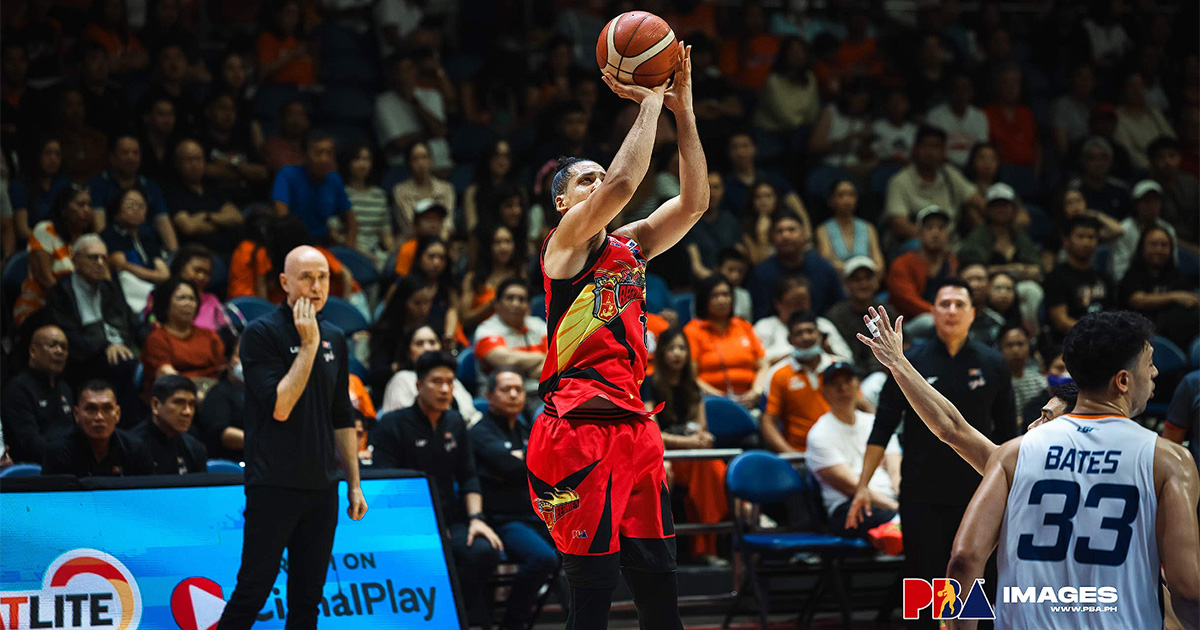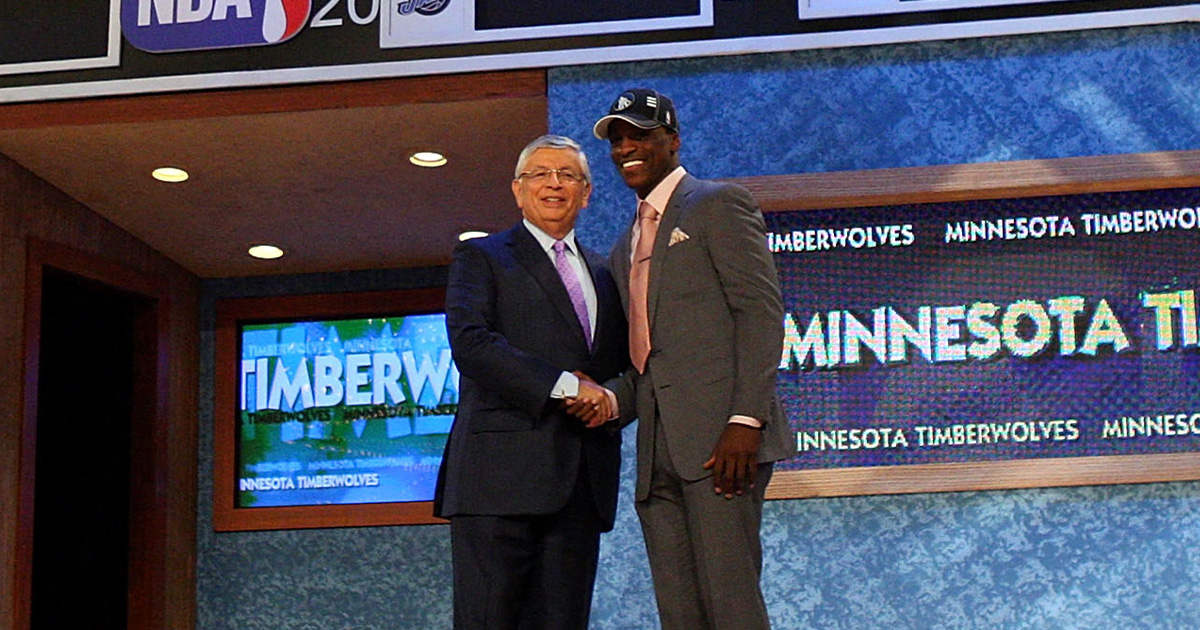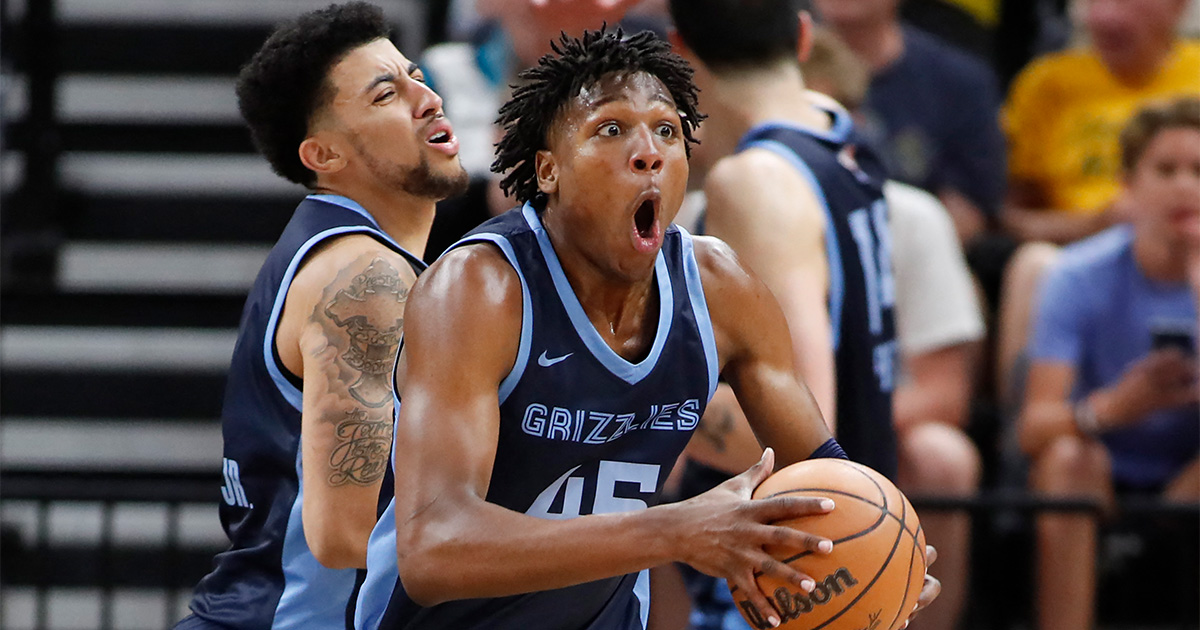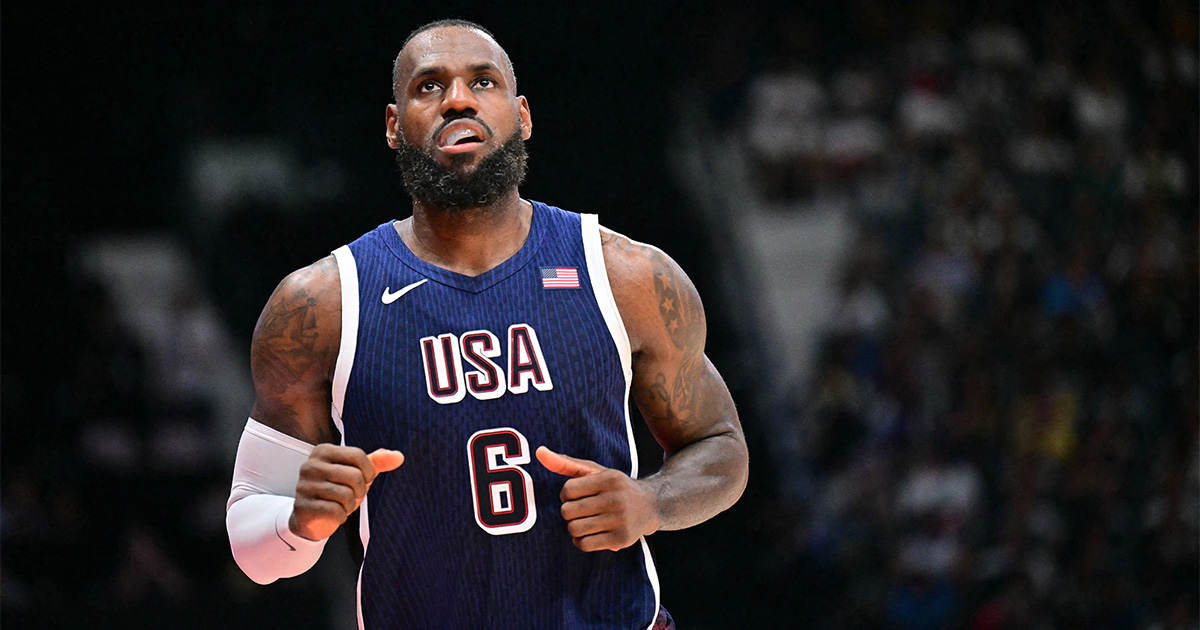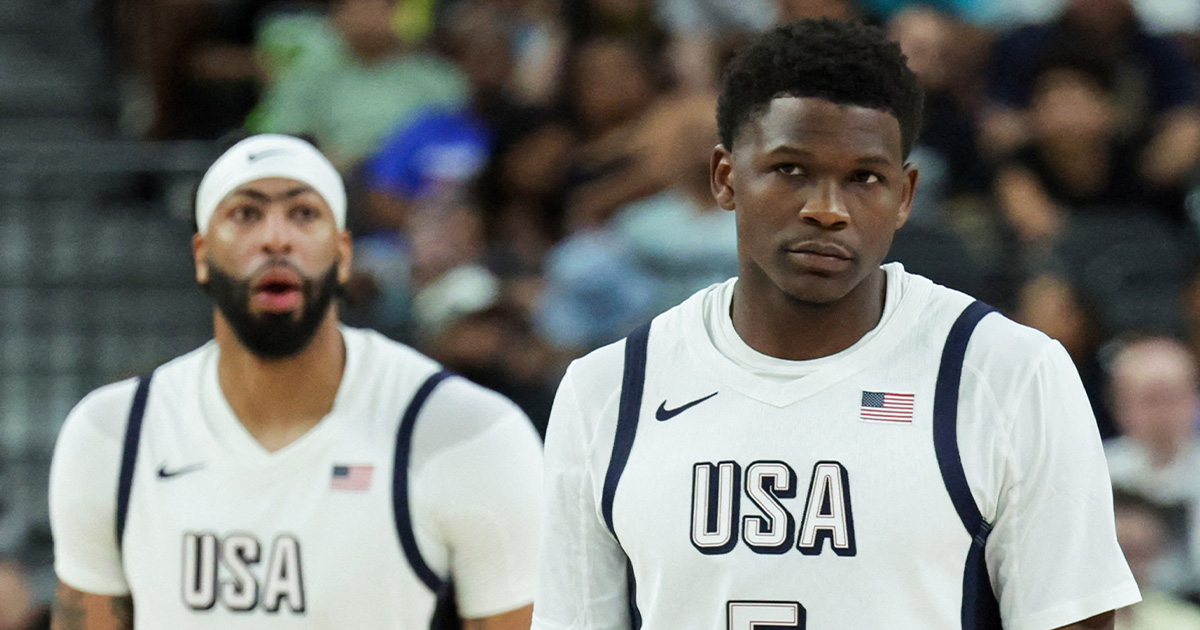The biggest storyline around the NBA over the past week has been the culmination of Steph Curry’s journey to become the league’s all-time leader in three-pointers made.
Playing in Madison Square Garden, the world’s most famous arena, Curry finally reached the top of the leaderboard with his second triple of the evening in the first quarter of the Golden State Warriors’ match versus the New York Knicks.
Curry’s 2,974th career three-pointer put him one triple over the previous leader, Ray Allen, who was in the building to witness the historic event. Reggie Miller, previously the record-holder with 2,560 made threes in his career, was also in attendance as a member of the TNT broadcast team.
While it was a special night for the league, it was one that has been widely expected to happen over the past few years. Curry’s remarkable three-point shooting, from what used to be considered obscene distances, has revolutionized the way basketball is played. With his run of dominance that started during Golden State’s ‘14-’15 title campaign, it is easy to forget that Curry was never expected to reach these heights, let alone change the game.
The gravity of this special moment is easy to overlook in the present, but with the passage of time, this momentous occasion will rightfully go down in history as one of the NBA’s most special nights. A record like this is hardly broken, evidenced by none of the other all-time leaders in the different major statistical categories (Points, rebounds, assists, steals, and blocks) being drafted in this century.
Witnessing Curry become the league’s all-time leader in three-pointers is the kind of story that will eventually be told by today’s youth to their grandchildren and while the ink on his record has yet to dry, it’s never too soon to take a look at the other statistical categories to figure out which could be the next one to see a new all-time leader emerge.
POINTS
- Kareem Abdul-Jabbar – 38,387
- Karl Malone – 36,928
- LeBron James – 35,811
:
- Carmelo Anthony – 27,758
:
- Kevin Durant – 24,652
For two entire decades with the Milwaukee Bucks and Los Angeles Lakers, Kareem Abdul-Jabbar was one of, if not the most, feared offensive weapon in the NBA. Over his first 17 seasons in the league, Abdul-Jabbar never averaged less than 21.5 points per game and still put up double figures per game numbers in his last three campaigns. Most of his 38,387 points came off his patented Sky Hook which was unstoppable because of the graceful 7’2 center’s extremely high release point that made the shot nearly impossible to block.
Abdul-Jabbar’s status as the most prolific scorer in league history has remained untouched since his retirement in 1989, despite worthy challenges from Karl Malone, Kobe Bryant, and Michael Jordan. However, LeBron James is now fast approaching him for the top spot.
Now in his 19th year in the league, the 37-year-old James is still averaging 26.1 points per game for the Los Angeles Lakers. If he can maintain this pace and avoid a catastrophic injury, he should be able to pass Abdul-Jabbar and become the league’s all-time leading scorer within 99 regular season games which should come by next season.
The all-time scoring list is undoubtedly a much bigger deal than the three-point record that Curry just broke, so the expected hoopla around James overtaking the iconic Laker center is sure to draw even more attention if it comes about.

REBOUNDS
- Wilt Chamberlain – 23,924
- Bill Russell – 21,620
- Kareem Abdul-Jabbar – 17,440
:
- Dwight Howard – 14,405
:
- DeAndre Jordan – 10,012
- LeBron James – 9,852
:
- Andre Drummond – 9,104
- Rudy Gobert – 6,547
Before Abdul-Jabbar ruled the league, a pair of centers named Wilt Chamberlain and Bill Russell dominated the paint in the 60’s. These three legendary big men remain the top three rebounders of all time, with Chamberlain and Russell still standing as the only two to have collected more than 20,000 rebounds in their career.
The number of rebounds that these icons amassed over their careers is a testament to their physical superiority and sheer dominance over their peers during the era. The leading rebounder among active players is Dwight Howard with 14,405 that puts him in 11th place all-time.
To put into perspective how far away the 36-year-old Howard is from the top three, if he continues at his current rebounding average of a career-low 5.4 per game, he will have to play roughly seven more seasons if he wants to even reach the third-place Abdul-Jabbar. The amount of ground that Howard has to cover to even get close to the top three, even with his 14 seasons of averaging at least 10 rebounds per game, is further proof of Chamberlain and Russell’s greatness.
ASSISTS
- John Stockton – 15,806
- Jason Kidd – 12,091
- Chris Paul – 10,552
:
- LeBron James – 9,814
:
- Trae Young – 2066
Almost 20 years after his career with the Utah Jazz ended, John Stockton hardly comes up in discussions over who the greatest point guard of all-time is. His lack of championships definitely put a dent on his resume, yet from a statistical perspective, the 19-year veteran has a formidable case.
Stockton’s 15,806 assists lead the second-place Jason Kidd (12,091) by a mile. The gap between the two is so wide that Kidd’s career average of 8.7 assists per game means that he would have had to play around 428 more games, good for five and a quarter regular seasons, if he wanted to exceed Stockton. Given Kidd was already 39 when he retired in 2013, he would have needed nothing short of a miracle to catch Stockton, whose assists were mostly to the current second all-time leading scorer Malone.
Chris Paul is currently the leader among active players and, even at the age of 36, still leads the league in assists per game with 10.3 a night. If he can continue to hand out assists at his current rate, Paul will need to play until he is 42 years old if he wants to pass the greatest guard in Utah history. It is safe to say that Stockton’s record is safe for the time being, though it will be interesting to see if the Atlanta Hawks’ Trae Young can gain some ground over the next decade.

STEALS
- John Stockton – 3,265
- Jason Kidd – 2,684
:
- Chris Paul – 2,387
:
- Paul George – 1,246
Stockton once again appears, this time as the all-time leader in steals. He averaged 2.2 steals over his career which led to a whopping 3,265. Once again, Kidd is in second place behind him with 2,684.
Unlike the all-time assist tally, Kidd was not as far behind Stockton in this race. At Kidd’s career average of 1.9 steals per game, he only needed to play four more seasons to steal the record from Stockton. The 6’4 guard, who won a title with the Dallas Mavericks in 2011, also saw a decline in his steal rate following 11 consecutive seasons where he averaged over two per game.
From ‘03-’04 to the first half of ‘07-’08, Kidd’s steals per game average dipped below two per game. This coincided with the most successful years of his career from an individual standpoint when he made several deep postseason runs as the heart and soul of the New Jersey Nets. His average returned to over two per game in his first season and a half with the Dallas Mavericks, but the dip during those latter seasons with the Nets may have cost him the top spot in the all-time steals rankings.
Meanwhile, it is not a surprise that Chris Paul is also the leader among current players in career steals, just like assists. Paul will need a little over five seasons of two steals per game to overtake Stockton, which seems far-fetched, though it is difficult to count out a competitor with the relentless drive of the Phoenix Suns’ current lead guard.
BLOCKS
- Hakeem Olajuwon – 3,830
- Dikembe Mutombo – 3,289
:
- Dwight Howard – 2,209
:
- Anthony Davis – 1,377
Steals and blocks were not recorded as official statistics until the ‘73-’74 season. This factoid is hardly brought up when discussing the all-time steals tally, but is almost always mentioned as a caveat when discussing the greatest shot-blockers in league history.
Chamberlain and Russell, for the same reasons that they are so far out of reach in the all-time rebound numbers, would have definitely topped this list if blocks were counted as a statistic during their time.
Instead, Hakeem Olajuwon stands on top of the all-time blocks list with 3,830 in his career. He averaged over four per game twice over his 18 seasons in the league and finished with a career nightly average of 3.1.
Dikembe Mutombo, who retired at the age of 42 in 2009, would have had to maintain his career average of 2.8 per game over two and a half more seasons if he wanted to supplant Olajuwon.
However, it is important to note that Mutombo was already 25 years old when he entered the league, compared to Olajuwon’s 22. When Mutombo burst onto the scene in 1991, he blocked three shots per game as a rookie and his average stayed above that level in eight of his first nine seasons. This adds fuel to the belief that he would have blocked even more shots than Olajuwon if he made it to the league at an earlier age.
Among current players, Dwight Howard is the leader with 2,209, though he will have to block two shots per game over almost 10 more seasons if he wants to reach Olajuwon, which is next to impossible given his advanced age. Howard’s current teammate on the Lakers, the 28-year-old Anthony Davis, has the highest total among active players younger than 30, but he will need to block two shots per game over the next 15 seasons if he wants to topple Olajuwon’s record.










